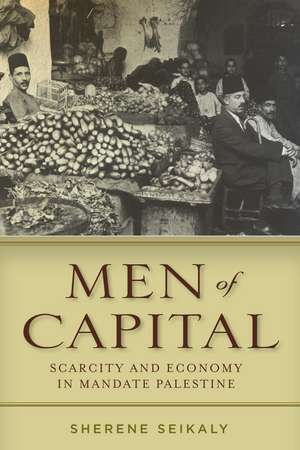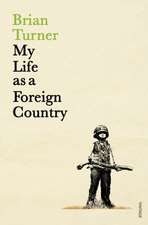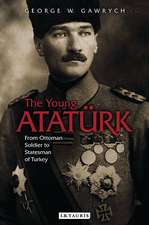Men of Capital: Scarcity and Economy in Mandate Palestine
Autor Sherene Seikalyen Limba Engleză Paperback – 17 noi 2015
Reading Palestinian business periodicals, records, and correspondence, Sherene Seikaly reveals how capital accumulation was central to the conception of the ideal "social man." Here we meet a diverse set of characters—the man of capital, the frugal wife, the law-abiding Bedouin, the unemployed youth, and the abundant farmer—in new spaces like the black market, cafes and cinemas, and the idyllic Arab home. Seikaly also traces how British colonial institutions and policies regulated wartime austerity regimes, mapping the shortages of basic goods—such as the vegetable crisis of 1940—to the broader material disparities among Palestinians and European Jews. Ultimately, she shows that the economic is as central to social management as the political, and that an exclusive focus on national claims and conflicts hides the more complex changes of social life in Palestine.
| Toate formatele și edițiile | Preț | Express |
|---|---|---|
| Paperback (1) | 171.47 lei 3-5 săpt. | |
| Stanford University Press – 17 noi 2015 | 171.47 lei 3-5 săpt. | |
| Hardback (1) | 645.19 lei 6-8 săpt. | |
| Stanford University Press – 17 noi 2015 | 645.19 lei 6-8 săpt. |
Preț: 171.47 lei
Nou
32.82€ • 33.82$ • 27.71£
Carte disponibilă
Livrare economică 10-24 februarie
Specificații
ISBN-10: 0804796610
Pagini: 272
Dimensiuni: 152 x 229 x 20 mm
Greutate: 0.36 kg
Editura: Stanford University Press
Colecția Stanford University Press
Recenzii
Notă biografică
Cuprins
This chapter introduces Palestinian "men of capital" in British ruled Palestine. It lays out their historical erasure as the product of settler colonialism; the historiographic dominance of the aristocrat, the comprador, and the middle class hero; and how nostalgia, mourning, and idealization of pre-1948 Palestine have flattened social life. Elites were not homogenous landowning elites but worked in commercial and industrial ventures. These men, and to a lesser extent women, shaped a broader Arab Nahda, or renaissance, as an economic project. The chapter maps the importance of new regimes of calculation in realizing national economy as a space of surveillance. It argues that an attention to how these regimes unfolded in Palestine destabilizes the conventional depiction of the colonial body as the agent and the colonized body as his ephemeral shadow.
This chapter details how men of capital in Palestine shaped economics as a body of knowledge and a science of the self. It shows how these men propagated what they understood as social progress, shaped notions of class and status, and guarded their social interests. These men were bankers, commercial entrepreneurs, and industrialists who located their ideas on capital accumulation and its relationship to national economy in a broader Arab project. The chapter challenges the temporal and conceptual boundaries of Arab liberal thought. By analyzing a dozen editorial articles and a number of contributed pieces in the periodical al-Iqtisadiyyat al-'Arabiyya, the chapter reveals how these Palestinian thinkers defined economy, described the economic conditions they lived in, and sought to shape an ethical economic subject.
This chapter details how the home became a site of fortifying social hierarchies at the same time that the discourse on domesticity described itself as a force of social reform in early twentieth century Palestine. By analyzing an article on the family budget and a ten-part radio program on the ideal Arab home, this chapter provides a window into how elites employed social difference to define new norms of class, gender, and collectivity. Reformers defined home economics as a necessary science and a mode of management. In doing so they created possibilities for and confined men and women. The chapter exposes the heavily policed contours of the civilized and the cultured. These contours would prove resilient across times and spaces to contain the political.
This chapter details British economic policy in the Middle East broadly and Palestine specifically during World War II. Scholarly depictions of the early twentieth century obsession with calculating economy have focused on the importance of measuring and realizing growth. This chapter looks instead at the construction and provision of basic needs during times of scarcity. It shows how British officials sought to realize economy as calculable through new technologies of rule such as the calorie and the emerging science of nutrition. Far from an imperative to rationalize the colonized body, this effort was born of the exigencies of war. British colonial officials introduced new conceptions of development, poverty, health, and productivity throughout the war. Their failures reveal the politics of basic needs. They also show how paradigms such as colonial development and sciences like nutrition promised the universal but enforced, indeed were constituted by exclusion.
This chapter details how Palestinian businessmen in Arab Chamber of Commerce attempted to manage economic crises during World War II. The self-defined social role of the Chambers was to guard the nation's public good. Wartime austerity was a structure of exclusion that was central to the erosion of Palestinian presence on the land. In the face of growing Jewish consolidation, economy took shape as a site of national battle. Men of capital were no longer the vanguard of a profitable future but were now the managers of crisis. Their central heroes were no longer the "civilized" and the "cultured" but the native authentic consumer, the honorable peasant and Bedouin. The lexicon of progress and civilization gave way to conspiracy, paralysis, and injustice. The broad territorial expanse of pan-Arabic economic regeneration shrunk to a bifurcated space of an Arab versus a Jewish economy in an increasingly embattled Palestine.
This chapter provides a case study of wartime economic policy. It details the British colonial government's effort to coercively control the production, distribution, and marketing of every vegetable in Palestine for six months in 1943. It historicizes the new index of the cost of living as a technology of economic calculation and rule. The chapter shows the shallowness of British government renditions of the Arab profiteer and "unorganized" Arab vegetable producers as the source of the "black market." It revels instead how Jewish cooperatives like Tnuva determined regulated and unregulated prices. The vegetable crisis and the attempt to tame the cost of living index exposes the limitations of British colonial power and its capacity to homogenize people and standards. Finally the vegetable story reveals the differences between Jewish and Arab relationships to government regulations as well as their access to institutional power.
This chapter traces how wartime austerity influenced peasants, villagers, and consumers in Palestine. A close look at British rule in Palestine reveals the dangers of overestimating colonialism's coherence. However, territorial and corporeal articulations of the healthy economy were not limited to colonial officials but important sites of Palestinian visions. Pan-Arabism was not only coupled with "socialism" but also relied on a transhistorical "commercial essence." A new mass of austerity regulations during World War II revealed the depths of Palestinian exclusion from state institutions. Palestinian men (and women) of capital in their imaginings of territory, in their emphasis on detail, in their ideas of progress did not live their reality as shadows of the Jewish settler or the British colonial officer. Their realities were part of a broader Arab project. This project, the Nahda was contingent on exclusion.














